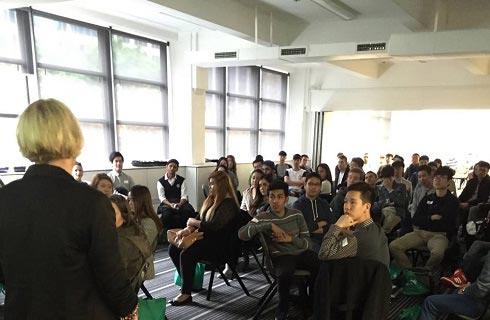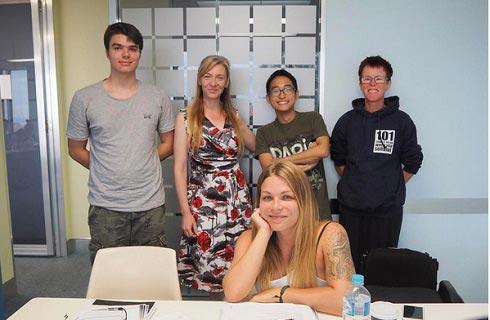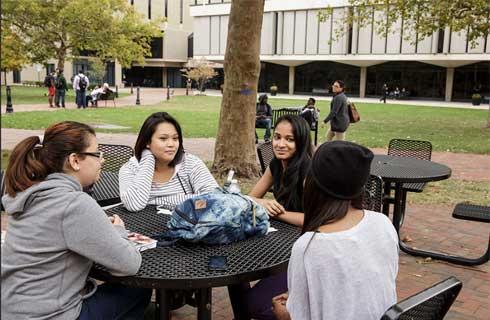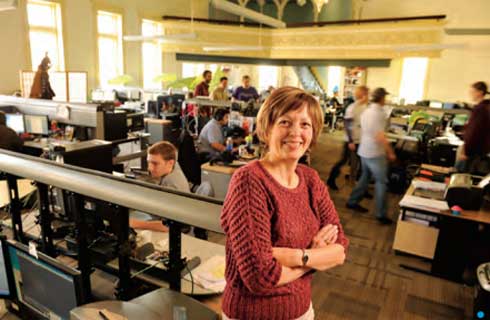Master of Science in Mathematics - Scientific Computing (Thesis)

学历文凭
Masters Degree

专业院系
Mathematics and Statistics

开学时间

课程时长

课程学费

国际学生入学条件
Submit ACT or SAT SCORES electronicallyGeorgia State is test-optional through Summer 2025. If you are a first-year international student and your high school GPA is 3.4 or higher, you do not have to submit your test scores to us. If your GPA is below 3.4, you should submit test scores to us.Submit SAT SCORES Submit ACT SCORES Submit proof of English proficiency. Submit official high school transcriptsIn addition to meeting all other applicable requirements for admission, non-native speakers of English must demonstrate sufficient English language proficiency. This may be demonstrated by any of the following methods:Graduation from a U.S. high schoolCompletion of an approved University System of Georgia (USG) campus-based English-as-a-second-language (ESL) program of studyProof of degree completion inside or outside the U.S., where English is the official language of academic instructionProof of completion of the equivalent of English 1101 and/or 1102 with a grade of C or better at an accredited U.S
IDP—雅思考试联合主办方

雅思考试总分
6.0
- 雅思总分:6
- 托福网考总分:60
- 托福笔试总分:160
- 其他语言考试:NA
CRICOS代码:
申请截止日期: 请与IDP联系 以获取详细信息。
课程简介
The Master of Science (M.S.) degree programs in mathematics provide education at the graduate level in algebra, analysis, applied mathematics, and statistics. Students completing these degrees are prepared for positions in industry, government, business, college teaching, and for advanced study in mathematics.The M.S. degree in mathematics is offered with no concentration, or with one of six possible concentrations. Four of the concentrations are in statistics, one is in discrete mathematics, and one is in scientific computing. The concentrations in statistics are programs designed for persons who wish to prepare for careers as professional statisticians in industry, business, or government. These programs provide advanced training in applied statistics for those who are presently working in areas that use statistics, as well as for those who plan to enter these areas. The programs present an optimal balance among the broad range of statistical techniques, mathematical methods, and computation. The concentrations in discrete mathematics and scientific computing are designed for persons who wish to combine their study of mathematics with selected areas in discrete mathematics and computer science. Opportunities exist to apply this study to related areas outside the department.Majors are encouraged to consider carefully the career objectives they wish to pursue after graduation. Early selection of these objectives may suggest the degree programs or concentrations that will prepare students for their chosen careers. Faculty who serve as advisers for graduate majors will discuss with majors the degree programs and concentrations available to them.
相关申请
 预科
预科 奖学金
奖学金 实习机会
实习机会 在校学习
在校学习 跨境学习
跨境学习 校园授课-线上开始
校园授课-线上开始 在线/远程学习
在线/远程学习
开学时间&学费
学费信息仅供参考,请与IDP联系以获取详细信息
| 开学时间 | 时长 | 学费 | 地点 |
|---|
学校排名

世界排名401
数据源:
泰晤士高等教育世界大学排名
本校相关课程

语言交流文学学士
学历文凭
Bachelor Degree
开学日期
课程费用总额


妇女,性别和性研究文学学士学位
学历文凭
Bachelor Degree
开学日期
课程费用总额


社会学文学学士
学历文凭
Bachelor Degree
开学日期
课程费用总额


社会工作学士
学历文凭
Bachelor Degree
开学日期
课程费用总额


风险管理与保险业务管理学士学位
学历文凭
Bachelor Degree
开学日期
课程费用总额


呼吸疗法理学学士
学历文凭
Bachelor Degree
开学日期
课程费用总额

其他相关课程

纯粹数学哲学博士
 滑铁卢大学
滑铁卢大学学历文凭
Ph.D.
开学日期
课程费用总额


组合与优化哲学博士-量子信息
 滑铁卢大学
滑铁卢大学学历文凭
Ph.D.
开学日期
课程费用总额


数学理学学士
 圣弗朗西斯泽维尔大学
圣弗朗西斯泽维尔大学学历文凭
Bachelor Degree
开学日期
课程费用总额


数学文科学士学位
 圣弗朗西斯泽维尔大学
圣弗朗西斯泽维尔大学学历文凭
Bachelor Degree
开学日期
课程费用总额


数学理学士(荣誉学位)
 特伦特大学
特伦特大学学历文凭
Bachelor Degree with Honours
开学日期
课程费用总额


数学理学学士
 特伦特大学
特伦特大学学历文凭
Bachelor Degree
开学日期
课程费用总额










 美国
美国
